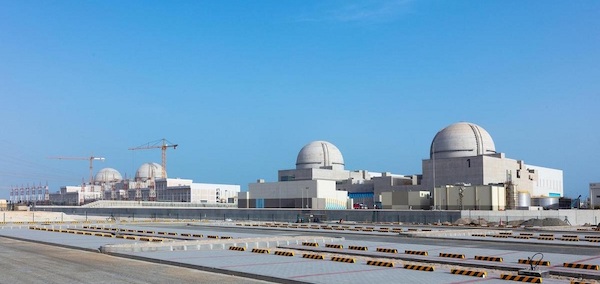The United Arab Emirates has begun start-up operations in the initial unit of its first nuclear power plant, the Emirates Nuclear Energy Corporation (ENEC) said on Saturday. The nuclear power plant will provide one-fourths of the Arab country’s electricity after three of its other units start operation.

But as the first unit of the nuclear power plant is inaugurated, which is the first step in the country’s ambitious nuclear goals, not only skepticism is rising from the neighboring countries especially the Persian Gulf Arab states but also most importantly the project represents a big security weakness to the UAE as Ansarullah Movement in Yemen is promoting its military capability to retaliate the atrocities of the Arab coalition that consists of Saudi Arabia and the UAE.
UAE nuclear activities and concerns of regional states
Abu Dhabi leaders have several times asserted that their nuclear activities are for peaceful purposes but their assurances could not prevent doubt cast on the real Emirati intentions behind their nuclear program.
In addition to the existence of some unsolved disputes between the Persian Gulf states that cause worries about the UAE nuclear activities, the Emirati regional actions have increased in recent years, giving the regional states more reasons not to buy the Emirati assurances about its nuclear program. Some countries like Turkey have now joined the circle of countries unassured of the peacefulness of the Emirati nuclear intentions.
Actually, although the Persian Gulf Arab monarchies have ostensibly welcomed and praised the Emirati construction of nuclear power plant to produce power, deep in their hearts they carry doubt and even distrust in the real nature of its nuclear program. The countries traditionally having substantial territorial disputes with Abu Dhabi grow serious perturbation about the country’s future program to increase the range of its nuclear activities.
Over the past few years, the UAE embarked on aggressive policies in dealing with regional cases. In addition to the other Arab countries, the Emirati regional policy is worrisome to Turkey, a country that stands on a collision course with the UAE in a majority of the regional cases and conflicts.
Still, other members of the (Persian) Gulf Cooperation Council, with respect to the type of the relations with the US, have tried to get the necessary assurances from Washington about the program not having military aspects. In fact, their side in expressing the nuclear-related worries is the US not the UAE.
Barakah Nuclear power plant; new UAE security weak spot
As the war continued against Yemen by the Saudi and Emirati forces, Yemen’s Ansarullah Movement as the driving force of the revolution that ousted President Abdrabbuh Mansour Hadi honed its combat skills and made advances in reaction capabilities marked by new ballistic missiles and combat drones. These advances, demonstrated themselves in the responses to the Saudi aggression against Yemen, drew serious concerns from the UAE, a country highly susceptible to attacks.
In 2017 and in response to the attacks on the civilians, Ansarullah launched an attack on the under-construction Barakah power plant. Although the attack was meant to bear a warning to Abu Dhabi rulers, it got in a flap the Emirati leaders as they understood that their nuclear power plant meant that they have at home a new big security vulnerability.
This comes while the Yemeni movement has recently unveiled its list of potential targets that includes locations in the UAE, Saudi Arabia, and the Israeli regime. Ansarullah warned that it will target them any time if the need arises. The list is important because the UAE is also where Ansarullah targets exist. This comes while for some time the Arab country was crossed off the list of potential targets for retaliatory strikes of Yemeni forces.
So, Barakah power plant characterizes a security risk for the UAE from two aspects:
1. The increase of Ansarullah strike capabilities over the past two years has increased the power to strike sites inside the aggression countries. Having in mind that the movement already targeted the power plant, the installation can once again come under missile and drone strikes from Yemen.
2. Small area of the UAE and location of the nuclear power plant in Abu Dhabi double the risks in case of an attack. If the power plant is attacked, a majority of the cities and especially the capital Abu Dhabi will suffer consequences. So, although by constructing the nuclear power plant the UAE tried to buy political prestige in the region and shore up its power to compete in the regional rivalry, it made for itself a big security weakness as a side effect.
SOURCE: Alwaght
LINK: https://www.ansarpress.com/english/19778
TAGS:






























 Violation of the sovereignty and rights of afghan citizens by America
Violation of the sovereignty and rights of afghan citizens by America




